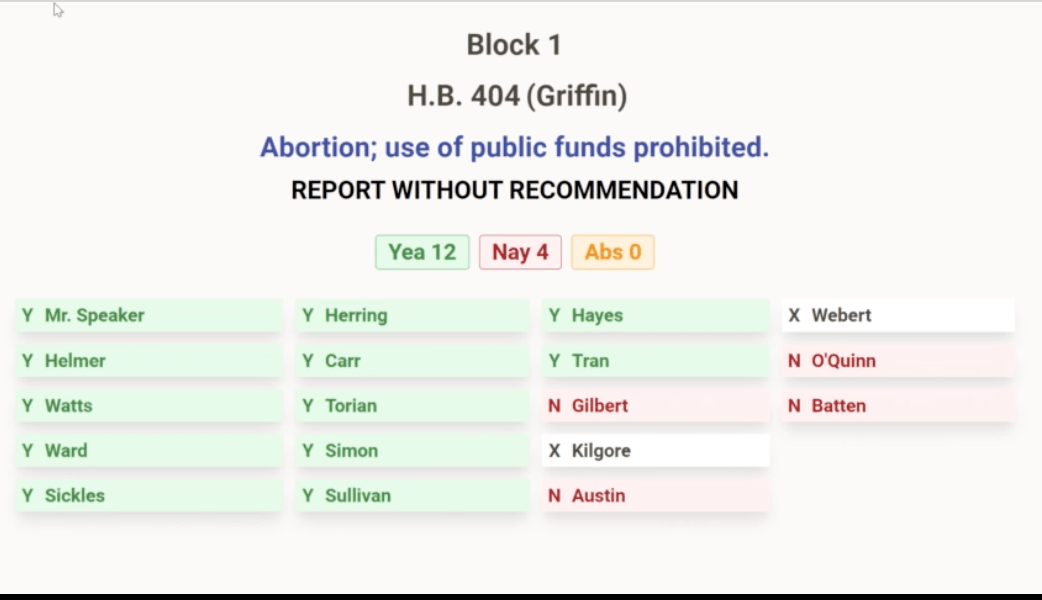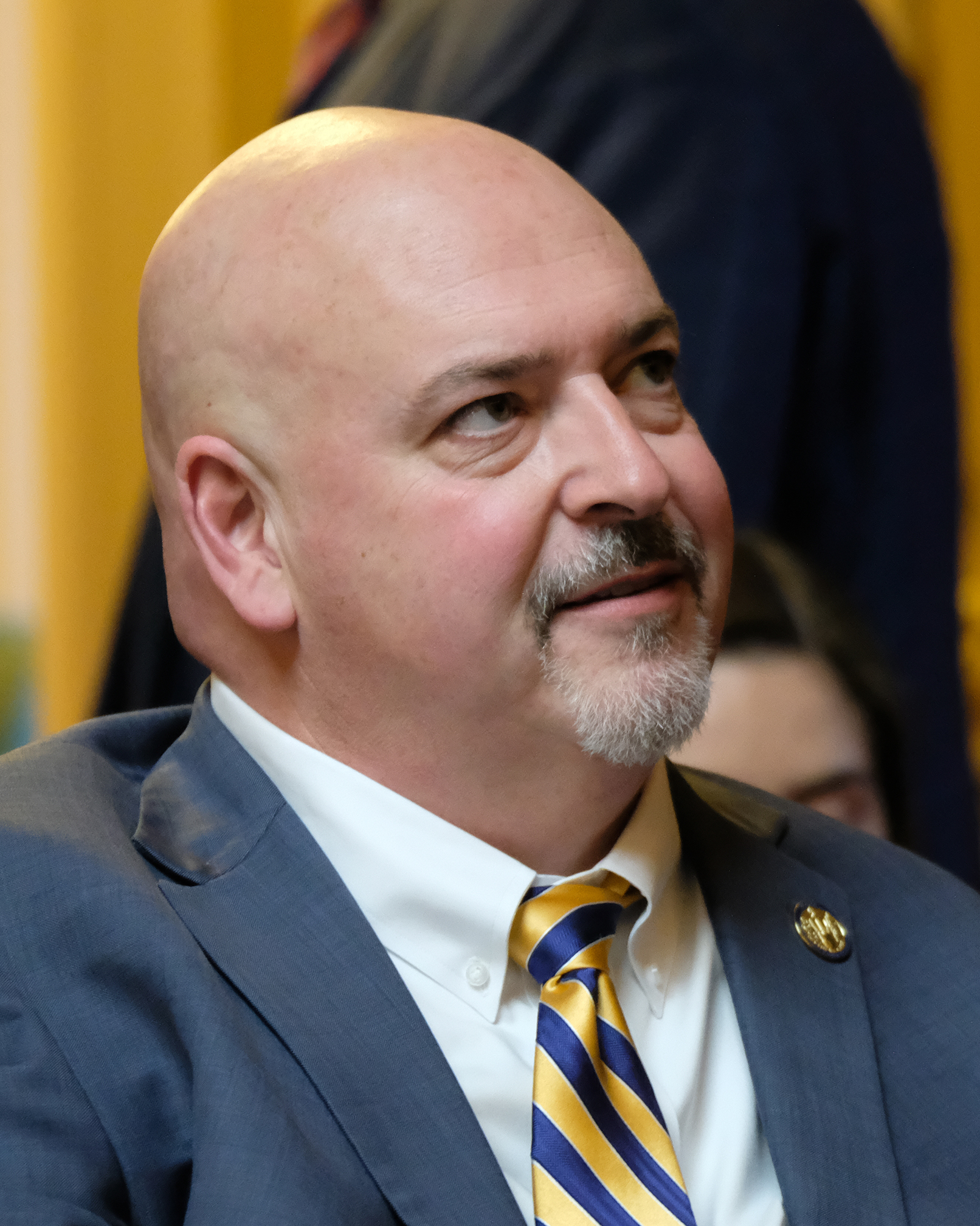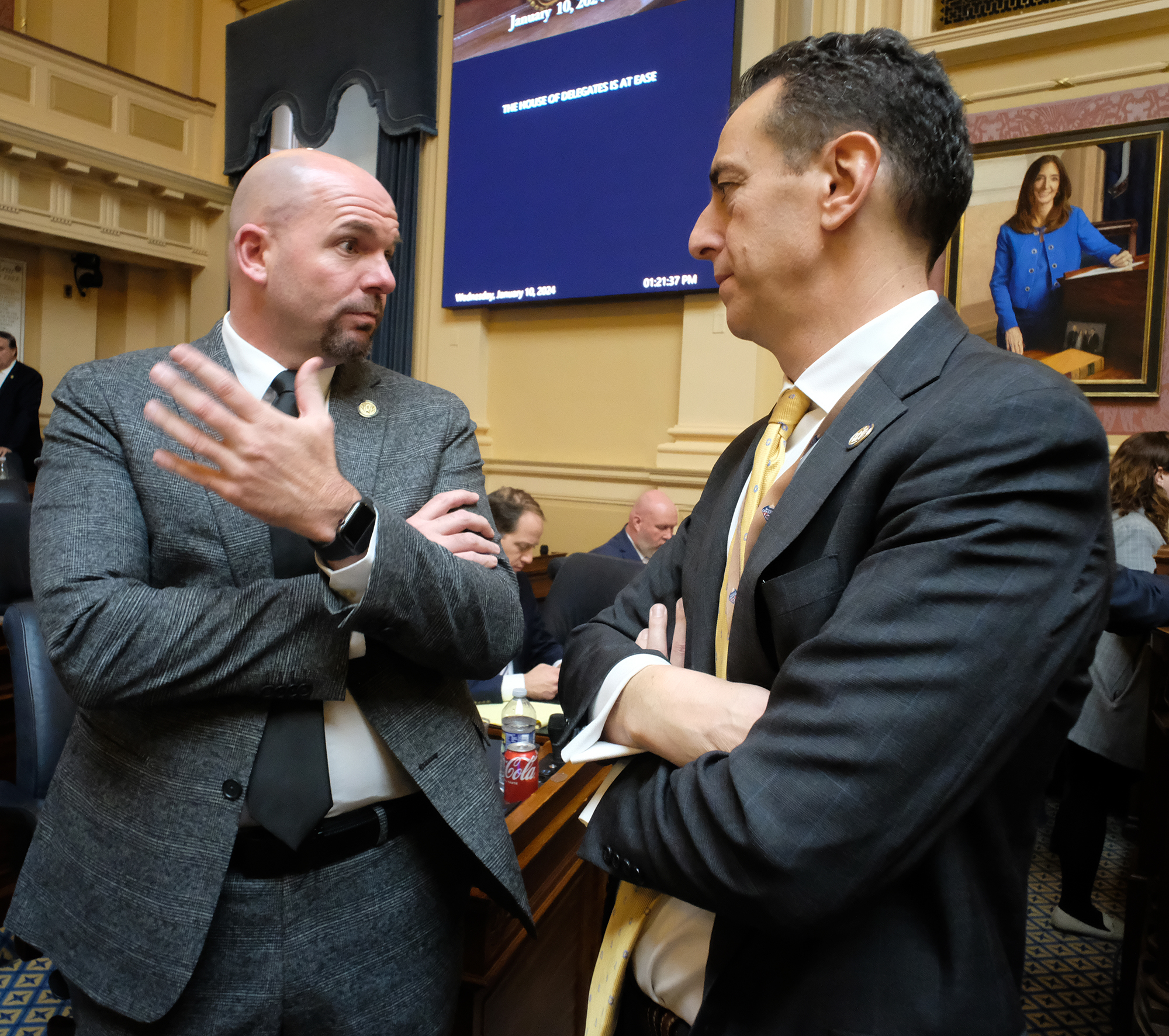House Democrats are forcing a floor vote for sometime next week on legislation that would limit access to abortion in order to impel Republicans to go on the record on one of the most divisive political issues facing the country in a presidential election year.
Less than a day after a Democratic-led House panel on Wednesday rejected a measure by Del. Tim Griffin, R-Bedford County, that would have banned all abortions in Virginia outright with no exceptions for rape and incest, the House Rules Committee on Thursday morning against all expectations advanced another Griffin proposal, which would prohibit the Virginia Board of Health to use state general funds to pay for abortions for women.
In what appears to be a deliberate political maneuver, the 12 Democrats on the committee voted to send House Bill 404 to the floor without recommendation, where lawmakers could take up the measure for a first of three votes as soon as Friday. The panel’s four Republican members who were present at the hearing voted against the move. 
Griffin did not speak to his bill at the brief committee meeting Thursday, which started shortly after 7:30 a.m., and no advocates for or against the bill addressed the body. Del. Todd Gilbert, R-Shenandoah County, the House minority leader and a member of the panel, asked to amend the bill to include exceptions for rape, incest or if the life of the mother was in danger.

“I believe that this bill is some effort to replicate the federal Hyde Amendment,” Gilbert said, referring to an amendment sponsored by Rep. Henry Hyde, R–Illinois, which was enacted in 1976 and effectively prevents federal funding from being used to pay for abortions — with very limited exceptions — via any programs that are administered by the Department of Health and Human Services.
But at the request of Del. Marcus Simon, D-Fairfax, the committee rejected Gilbert’s motion to amend the measure. “We can deal with this on the floor, I think the idea is to just get this up and put the amendment on the floor as well,” Simon said.
A visibly puzzled Gilbert then wondered out loud why the committee would deny his motion.
“I don’t understand why we wouldn’t want to put the bill in the proper order, unless there were other purposes in sending it to the floor,” he said. “If this is a bill as I think it is intended by the patron, I’d certainly want to put it in a proper order, unless some folks clearly want to deny us the ability.”

David Richards, a political analyst and chair of the political science program at the University of Lynchburg, said that Griffin, who was elected to his first term in the General Assembly in November, had been outmaneuvered by the Democrats.
“This looks like it is a mistake on the part of Griffin. He seems to have placed his ambition to have a kind of gotcha bill that he could then claim that the Democrats had prevented from coming to the floor, but in the end it looks like he got caught in his own trap, and now the Republicans will have to vote on an abortion measure after all,” Richards said.
Parliamentary procedure is meant to facilitate discussion and move voting along smoothly, Richards added. “But in the hands of somebody who knows what they’re doing, it can become a political weapon. That’s why when there’s a large turnover in the legislature, making sure that delegates know parliamentary procedure is essential for party discipline.”
By sending the legislation to the House floor, Democrats are essentially forcing their Republican colleagues to cast their vote on one of the most contested political issues nationwide since the U.S. Supreme Court’s 1973 decision in Roe v. Wade, in which the court ruled that the right to have an abortion was generally protected under the Constitution of the United States.
But after the Court reversed that ruling in June 2022 and sent abortion back to the states, 21 states have banned abortions or restricted the procedure earlier in pregnancy than the standard set by Roe v. Wade, which governed reproductive rights for nearly half a century.
In Virginia, Republican Gov. Glenn Youngkin — then in his first year in office — made restricting access to abortions one of his legislative priorities. But because Democrats had a narrow majority in the Senate, Youngkin hoped to flip some Democratic votes by proposing to ban most abortions after 15 weeks of gestation while making a violation of the law a Class 4 felony, punishable by up to 10 years in prison and a $100,000 fine.
Then-Sen. Steve Newman, R-Bedford County, carried Youngkin’s signature proposal in the Senate. But after it was defeated by Senate Democrats on committee level in February of last year, House Republicans scrapped their plan to take up Newman’s companion measure in the House, in order to avoid putting their members in swing districts on the record in an election year when all 140 seats in the General Assembly were on the ballot.
Well aware of the implications, Simon, the delegate from Fairfax County, then attempted a rules change to force a floor vote on a proposed constitutional amendment protecting access to abortion in Virginia — an undertaking that would have required several steps in order to become law. The General Assembly must first approve it in two different years with an election for the House of Delegates in between, before it is placed on a ballot for a voter referendum.
But House Republicans by a 50-45 party-line vote blocked Simon’s effort to force a vote on a resolution seeking to enshrine abortion rights in the Virginia Constitution, averting a problem that they feared would cost them votes for little return.
This year, however, Democrats control both chambers of the legislature, leaving Republicans powerless to avert a floor vote and a likely debate over abortion rights on one of the most visible political platforms in the commonwealth.
Garren Shipley, a spokesman for the House GOP, declined to comment Thursday. But Scott said in a statement in the afternoon that while it is rare that the motion to report without recommendation is exercised by the Rules Committee, “as Speaker, I believe this moment called for its use so that Virginians know exactly what their representatives choose to do with the power granted to them by their constituents.”



